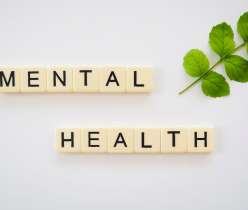Stress is unpleasant; it can have a severe impact on our health and professional life. Fortunately, it is possible to manage stress with the right tool and techniques. Relaxation techniques may help reduce stress and ease the physical and emotional burden.
Almost all of us experience stress in life, whether it is for a short period or long-term stress associated with career or family responsibilities. There is no one size fit solution when it comes to relieving stress. We must understand that what works for our friends might not work for us. So, it is essential to know about a variety of stress management techniques so that you can pick a strategy that works best for your current situation.
Ways to Reduce Stress
It is worth taking the time to learn different strategies for managing stress before you experience serious consequences related to your mental and physical health.
- Exercise- Just 30 to 40 minutes of physical activity can make you feel much healthier and positive. Various studies have revealed the health benefits of regular exercise, from reducing depression to improving cognitive function. Exercise triggers the production of endorphins, which brings positive feeling in an individual. You can follow any of these exercises for mental stress:
- Walking- One of the best ways to trigger the release of endorphins, which can make you feel great after you do it for 20 to 30 minutes. A brisk walk is more beneficial when it comes to reducing the stress level. This will also keep you motivated and make you feel capable of accepting the challenges in life.
- Swimming- You can also join a swimming pool, swim a mile every day and wash away all your stressful thoughts. Swimming is also an excellent remedy for people with joint and muscle pain.
- Yoga- A great practice to regulate your breathing and your mind’s wanderings. Yoga is an excellent remedy for a wide range of physical and mental health issues.
- Sports- Playing sports such as volleyball, cricket, badminton or any other sports of your choice can not only keep you physically active but also get the benefits of socialization. You will be able to make new friends and workout at the same time, which is excellent for mental and physical health.
- Massage Therapy- A massage is a great way to relax and to minimize the physical and mental stress you are experiencing. Ask your family member, or you can also visit a massage therapy centre. Massaging your neck forearms, palms, head or feet can make you feel relaxed and calm even during the most stressful circumstances.
- Eat Healthily- A right diet is a key to manage mental and physical health. A healthy and well-nourished body is capable enough to cope with any emotional or physical side effects of stress. When stressed, some people tend to eat high-calorie foods, or they overeat during those difficult times, which only adds to your problem. If you want to reduce stress in your life, then you should be particularly focused on what you are eating.
Also Read: Stress and Anxiety can cause Erectile Dysfunction
Follow these diet tips to reduce stress:
- Never skip the breakfast- You might have read in numerous health magazines, or journals that skipping breakfast can take a toll on your health. Breakfast is considered as the most important meal of the day, add healthy carbs like oatmeal proteins like ham or lean turkey along with a healthy portion of green leafy vegetables and colourful fruits.
- Prefer three balanced meals- No matter how busy you are, you should eat three meals daily. Skipping meal can trigger stress and interfere with your daily activities.
- Snack healthy- carry a banana, apple, or a small box of nuts with you. Avoid having sugary snack or soda as these type of foods can make you lethargic throughout the day.
- Minimize caffeine, sugar, and alcohol intake– these beverages give you only a temporary boost but often result in mood crashes and low energy levels later. Cutting back or replacing these fluids with a cup of herbal tea can do wonders from your health; it can not only improve your sleep but also reduce stress levels experience in stressful conditions.
- Improve your sleep pattern- Sleep is a very important part of a healthy life. Improving your sleep routine will go a long way in helping you minimize stress levels since sleep affects your cognitive function. Various research has shown that those who sleep for 7 to 8 hours are happier and healthier. Sleeping less can make you feel groggy and unable to deal with your responsibilities at home and workplace. Try to go to bed at the same time each day and get the same amount of sleep every day to feel more balanced. Set an environment before you shut your eye, you can read you’re your favorite story or listen to calming music. Dim lights and comfortable can help you get the quality sleep you are looking for.
- Think positive-Be positive during your everyday interactions. Thinks about three things that you are grateful for, this will help your mind to generate positive feeling, which helps to relieve stress. With a positive mind, you will be able to cope with your challenges in a better manner.
- Laugh more- Laughing has been proven to minimize stress. Happiness can have a significant impact on a person’s health who is dealing with an illness or surgery. Various studies have shown that even a small act of smiling can improve your mood and make you feel happier. When you laugh, your body releases endorphins, a chemical substance that enhances your mood. When you are happy, you look at things in a different light and may turn whatever is stressing you out. Laughter is a great stress management technique.
Also Read: Effects of Stress Leads to Hair Loss, Thinning, Balding



